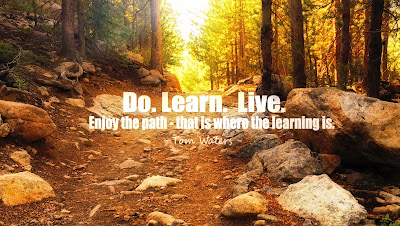Data is NOT the Solution for Teachers
Data-driven instruction was a good idea back before our students were born. In the early 2000's, it was the right idea because no one looked at data. There were just the annual reports from State accountability. But now the misuse of data-driven is more like the Iditarod sled races in Alaska. It’s like the sled being driven by a whip. The teachers are the huskies and the well-intentioned #edleader is the driver. Mush! Mush! Let's Go! Pull your weight! Data driven, but not data-informed.
| The Iditarod Sled Races |
Data Informed Reflection
The solution is data-informed, and more importantly, results reflected. Results reflected is the idea that teachers create their own reflective learning throughout the year. Curriculum and administrative leadership provide a menu of data tools (i.e. fluency tests, vocabulary tests, multiple choice, reading levels, etc..). Data tools that are highly reliable and easy to implement. Teachers choose from that set of tools. They compile the data on a nine week, six week, or monthly basis into a "dashboard". Then they use the data to highlight, hmm...CELEBRATE their own successes. These successes are shared in a collaborative environment. And the teachers reflect on where they need to improve to boost growth in the next round of data.
Data Dashboards
A dashboard provides a driver with the most critical information needed. How's my gas? Engine temp. Speed. RPMs. The same is true for a data dashboard in education. What are the most valuable metrics to show me if my class or my campus is growing? I don't want to know state testing results...that's too late! I want data that is sensitive to growth. Data that fluctuates based on teacher input and minor improvements in student growth. If a teacher or administrator can detect the small improvements, then the decision can be made to do more of what made those improvements! That's the idea of the dashboard. If I press this pedal, my speed decreases. If I press this pedal, I speed up.
End of Year Reflection
The end of the year is an excellent time for one thing - reflection. It’s so easy to get distracted by end-of-year activities...field days, field trips, cupcakes, you name it. However, great organizations stay focused on goals all the way to the end. They use this time for reflection. If data dashboards are created through the year, collaborative teams can springboard into excellent result reflection. They can celebrate what was great. They can find patterns in areas to improve. This all builds into a powerful plan for systemic improvement next year.
And for the professionals involved...it gets the drive of the Iditarod off their back! And puts data-informed, reflective growth in their capable hands.
Please read more to sustain improvement in your school.
- Read here for How fear can kill a campus
- Promote a Growth Mindset and Watch your School Improve!
- Use leadership to recover from a damage culture with these 23 Tips to Boost Staff Morale.




Comments
Post a Comment
What are your thoughts?